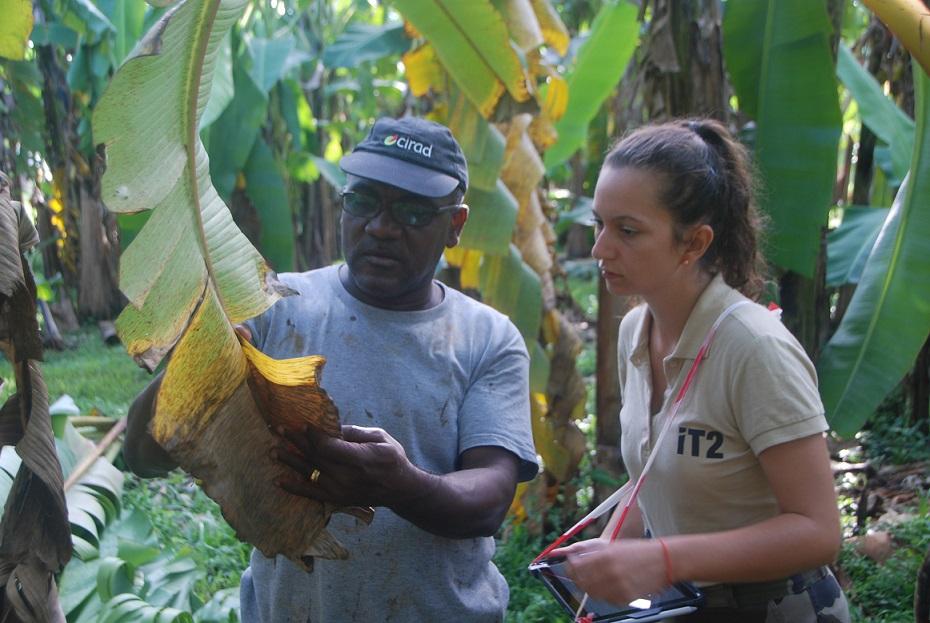- Home
- Worldwide
- CIRAD worldwide
- Projects
- DuRéBan project
Achieving sustainable resistance to black Sigatoka disease in new dessert banana varieties - DuRéBan

Partners from CIRAD and IT2 assess the degree of susceptibility to black Sigatoka of progenies produced by the CIRAD creation and breeding platform © F. Salmon, CIRAD
Issues
The dessert banana export market relies solely on the Cavendish variety, which is highly susceptible to black Sigatoka, a disease caused by the fungus Pseudocercospora fijiensis. This means using fungicides. To reduce pesticide use, the dessert banana value chain in the French West Indies needs to manage this fungus, which was recently introduced into the French West Indies and is already significantly affecting banana quality. New disease-resistant varieties are now being produced and bred under CIRAD’s genetic improvement programme, for instance the Pointe d’Or® variety (CIRAD 925). However, the parasite is very capable of adapting, and can erode resistance. In this context, the DuRéBan project aims to endow new banana varieties with sustainable resistance to black Sigatoka.
Description
The project identifies parents that carry effective resistance, by characterizing the resistance of a panel of banana plants being used by the varietal improvement programme, under controlled conditions. It facilitates the transfer of resistance from those parents to their progenies. To this end, it studies the phenotypical and genotypical variations in black Sigatoka susceptibility characters in progenies produced by the Neufchâteau station’s creation and breeding platform. It tests their sustainability under natural conditions by means of an epidemiosurveillance approach based on monitoring changes in disease levels in new, partially resistant hybrids. Lastly, it defines strategies for rolling out new varieties across a production basin, using an epidemiological simulation model, which makes it possible to identify the spatial scale and patterns for mixing susceptible and resistant varieties that will control the disease most effectively.
Expected impacts
- Stronger partnerships will have been built between research (CIRAD) and technical centres (IT2)
- New varieties will have been adopted within the agricultural landscape of the French West Indies, helping to trigger a shift towards a type of production that will be of use in terms of segmentation
- The banana value chain in the French West Indies will have adopted these resistant varieties in order to manage black Sigatoka sustainably
- Fungicide use, which is currently the only solution in the case of Cavendish banana monoculture, will have been reduced.
Contract partners
- Institut Technique Tropical (IT2)























